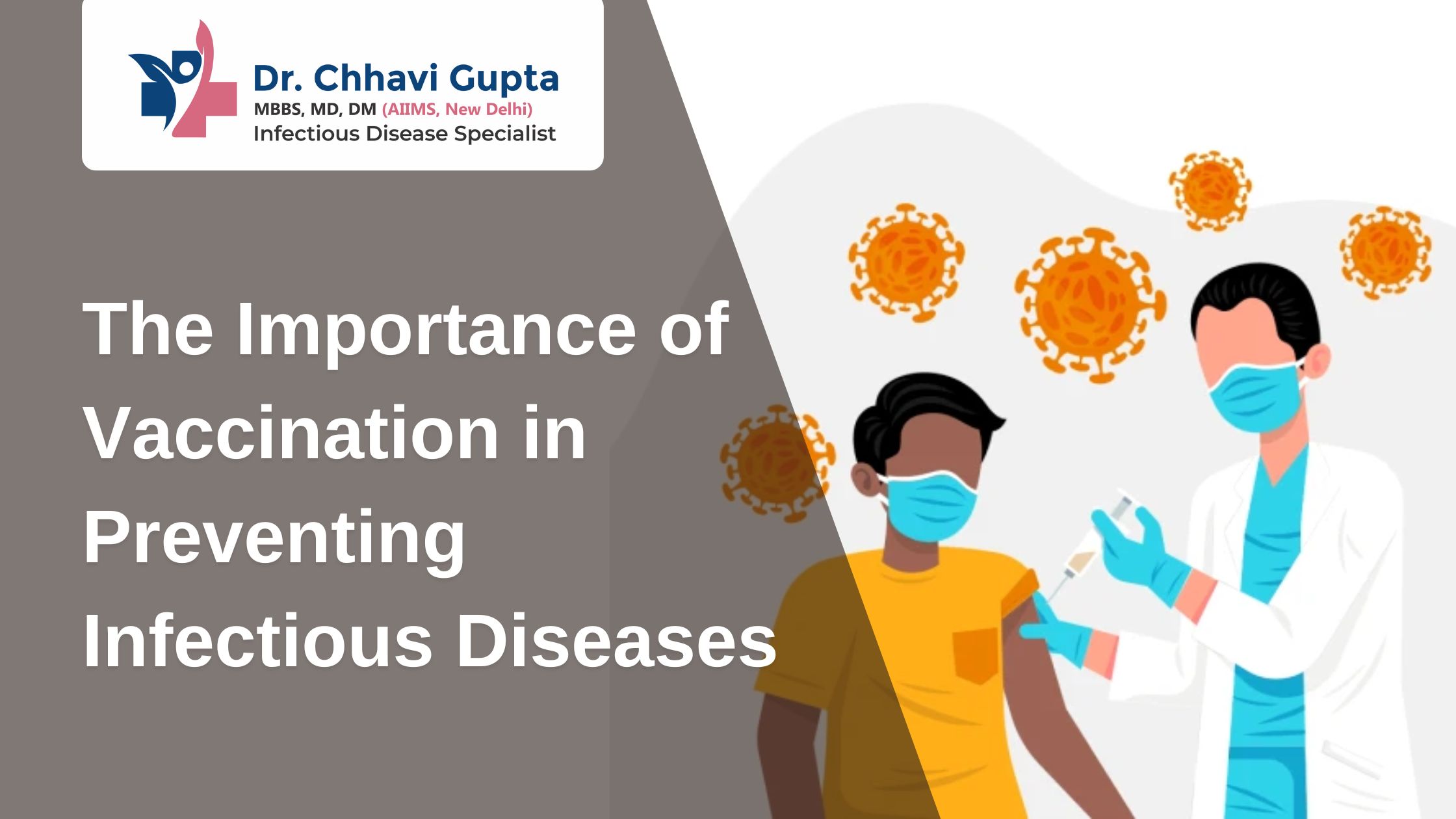
The Importance of Vaccination in Preventing Infectious Diseases
Vaccination is one of the most effective and essential tools in modern medicine, playing a crucial role in preventing infectious diseases and saving lives. For decades, vaccines have protected millions of people worldwide, reducing the spread of contagious illnesses and eradicating certain diseases entirely. In today’s world, where infectious diseases continue to pose significant threats, vaccination remains as vital as ever.
How Vaccines Work
Vaccines work by stimulating the body’s immune system to recognize and fight pathogens, such as viruses or bacteria, without causing the disease itself. When vaccinated, your immune system produces antibodies that protect you from future infections. This process not only safeguards individuals but also contributes to community-wide immunity, also known as herd immunity, where the spread of contagious diseases is reduced or stopped entirely.
Why Vaccination Matters
- Preventing Life-Threatening Diseases
Vaccines protect against severe and sometimes fatal diseases such as measles, mumps, rubella, polio, tetanus, diphtheria, and more recently, COVID-19. Immunization programs have saved millions of lives worldwide, drastically reducing the incidence of diseases that were once common and deadly. - Reducing the Spread of Infectious Diseases
Vaccines help in controlling outbreaks by reducing the transmission of infectious diseases. When enough people are vaccinated, the spread of diseases is minimized, protecting those who are unable to get vaccinated, such as infants, the elderly, or people with weakened immune systems. - Cost-Effective Healthcare
Preventing a disease is far more cost-effective than treating it. Vaccines reduce the financial burden on individuals and healthcare systems by preventing expensive medical treatments, hospitalizations, and loss of productivity due to illness. - Protecting Vulnerable Populations
Vaccines help protect vulnerable populations, such as children, pregnant women, the elderly, and those with chronic health conditions. These groups are at higher risk of complications from infectious diseases, making vaccination even more crucial for their health and well-being. - Building Long-Term Immunity
Some vaccines, such as those for measles or polio, provide long-term or even lifelong immunity, reducing the risk of infection throughout a person’s life. Others, like the flu vaccine, require annual doses to provide protection against evolving strains of the virus.
Vaccines You Shouldn’t Miss
- Influenza Vaccine
The flu vaccine is essential, especially for high-risk individuals like the elderly, children, and people with chronic conditions. Annual flu shots are needed to protect against new strains of the virus that emerge each year. - Pneumococcal Vaccine
Pneumonia is a leading cause of death, particularly among older adults and individuals with weakened immune systems. The pneumococcal vaccine helps prevent pneumonia, meningitis, and other infections caused by the Streptococcus pneumoniae bacteria. - Shingles (Herpes Zoster) Vaccine
Shingles is a painful skin rash caused by the reactivation of the chickenpox virus. The shingles vaccine, such as Shingrix, is recommended for adults over 50 to prevent this viral infection. - Hepatitis Vaccines
Hepatitis A and B vaccines protect against liver infections caused by the hepatitis viruses, which can lead to chronic liver disease and cancer. These vaccines are particularly important for people in high-risk groups and travelers to areas where these infections are common. - Human Papillomavirus (HPV) Vaccine
The HPV vaccine protects against the human papillomavirus, which can cause cervical cancer and other types of cancer. It is recommended for both boys and girls, usually starting from adolescence.
Addressing Common Vaccine Myths
Despite overwhelming scientific evidence supporting the safety and effectiveness of vaccines, some myths and misconceptions still circulate. It’s important to address these concerns:
- Myth: Vaccines cause the diseases they are meant to prevent.
Fact: Vaccines contain inactivated or weakened forms of viruses or bacteria that cannot cause the disease. - Myth: Vaccines cause autism.
Fact: Extensive research has found no link between vaccines and autism. This misconception was based on a fraudulent study that has since been debunked. - Myth: Healthy individuals don’t need vaccines.
Fact: Even healthy people can contract and spread infections. Vaccines not only protect you but also help protect those around you. - Myth: Vaccines are too expensive and unaffordable for most people.
Fact: Vaccines are cost-effective in the long run. While there may be upfront costs, they prevent certain illnesses that could lead to hospitalization and expensive treatments.
Conclusion
Vaccination is a powerful, life-saving tool that not only protects individuals but also safeguards communities. Staying up-to-date with recommended vaccinations can prevent the spread of infectious diseases, reduce healthcare costs, and save lives. For more information about vaccines and to schedule your vaccinations, consult with your healthcare provider.
Dr. Chhavi Gupta, a renowned Infectious Diseases Specialist from AIIMS, New Delhi, specializes in managing infectious diseases and preventive care. Now available for consultations at Yashoda Super Speciality Hospital, Dr. Gupta is dedicated to offering expert guidance on vaccinations and other preventive healthcare measures.
For consultations, contact:
📞 +91 8851 346 424

Leave a Comment
(0 Comments)